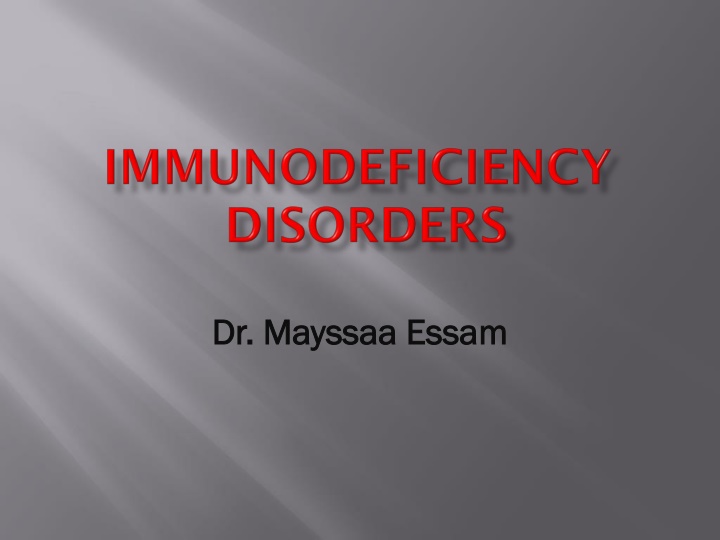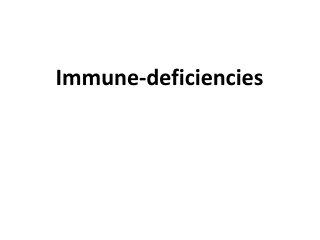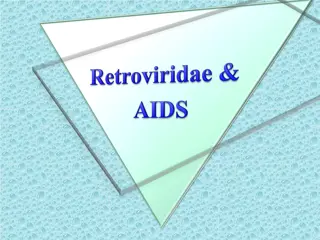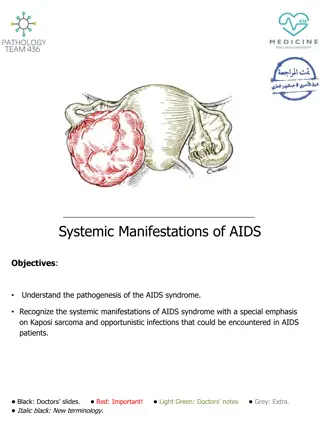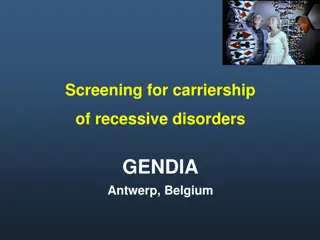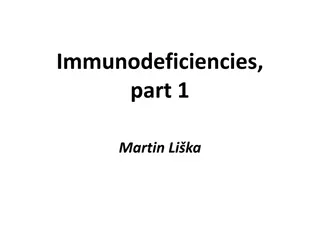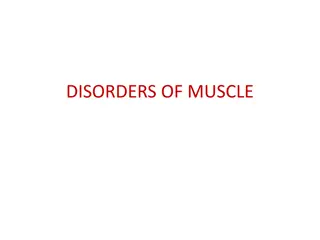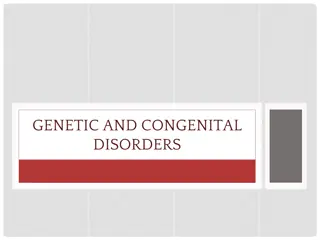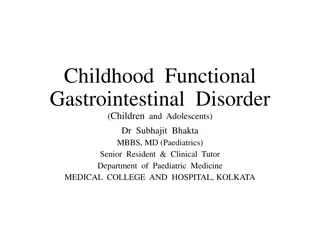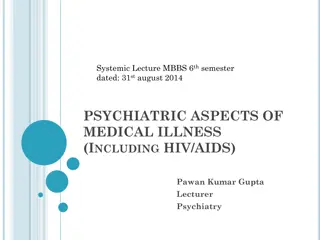Inherited Immunodeficiency Disorders Overview
Purine nucleoside phosphorylase deficiency, phagocytic dysfunctions, chronic granulomatous disease, and complement abnormalities are inherited immunodeficiency disorders leading to increased susceptibility to infections. Symptoms include recurrent infections, anemia, eczema, and reduced antibody levels. Proper diagnosis and treatment, such as bone marrow transplantation therapy, are essential for managing these conditions.
Download Presentation

Please find below an Image/Link to download the presentation.
The content on the website is provided AS IS for your information and personal use only. It may not be sold, licensed, or shared on other websites without obtaining consent from the author.If you encounter any issues during the download, it is possible that the publisher has removed the file from their server.
You are allowed to download the files provided on this website for personal or commercial use, subject to the condition that they are used lawfully. All files are the property of their respective owners.
The content on the website is provided AS IS for your information and personal use only. It may not be sold, licensed, or shared on other websites without obtaining consent from the author.
E N D
Presentation Transcript
Dr. Dr. Mayssaa Mayssaa Essam Essam
- Purine hypoxanthine uric acid - Is an enzyme which cleaves anucleoside by phosphorelating the ribose to produce nucleobase and ribose 1 phosphate. - Patients, who have purine nucleoside phosphorylase (PNP) deficiency as an autosomal recessive, show recurrent or chronic infections. They usually present with anemia, recurrent pneumonia, diarrhea. - Low serum uric acid level point out the diagnosis.
- Associated with normal T cell numbers with reduced functions. - IgM concentrations are reduced but IgG levels are normal - Both IgA and IgE levels are normal. - Boys with this syndrome develop severe eczema. - They respond poorly to polysaccharide antigens and are prone to pyogenic infection. - Treatment needs bone marrow transplantation therapy.
- Disorders of phagocytosis may be due to intrinsic or extrinsic defects. Intrinsic defects are the defects within phagocytic cell (e.g. enzyme deficiency). Extrinsic defects are due to: 1. Deficiency of opsonic antibody, complement and other factors promoting phagocytosis. 2. Effect of drugs.
Phagocytic dysfunction leads to increased susceptibility to infection ranging from mild recurrent skin infections to overwhelming systemic infections.
- Chronic granulomatous disease is a familial disease manifests as recurrent infections with low-grade pathogens starting early in life. - Chronic granulomatous lesions occur in the skin and lymph nodes. - Catalase-positive pyogenic pathogens are the causative agents in the infections, because leukocytes from patients are unable to kill catalase-positive bacteria following phagocytosis.
- Complement abnormalities also lead to increased susceptibility to infections. - There are genetic deficiencies of various components of complement system, which lead to increased infections.
- Complement component 3 (C3) deficiency is associated with recurrent pyogenic infections. C5, C8 deficiencies are associated with neisserial infections. - C3b inactivation deficiency is associated with chronic recurrent pyogenic lesions. -
Treatment is with androgens and aminocaproic acid (is aderivative and analogue of the amino aci lysine,which makes it an effective inhibitor for enzymez that bind that particular residue,proteolytic enzymes,like plasmin).
- Certain immunodeficiency diseases, instead of arising from genetic or developmental causes, may result from environmental exposure.These diseases are termed as secondary immune deficiencies. - Among the environmental factors that affect adversely on the immune system are general health, therapeutic treatment, infections and malignancies, (drugs, malnutrition, minerals, vitamins).
- A large number of viruses evade host's immune mechanism by causing generalized immune suppression(depression). Among them measles, Cytomegalovirus (CMV) and HIV are common. - In some cases, the virus directly destroys the lymphocytes and macrophages (HIV causing lysis of CD4 cells). - Immune suppression may be due to cytokine imbalance.
- Therapeutic Treatment : Corticosteroids, in the treatment of autoimmune diseases, interfere the immune response by depletion of lymphocytes and there by reduction of cytokines. Cytotoxic drugs or radiation treatment for various cancers, frequently damage the dividing cells of the body including those of the immune system.
Infection: Many infectious agents evade the immune response generated against them , some bacteria secrete enzymes, which destroy the local immunoglobulin and complement components. Some bacteria and viruses protect themselves after ingestion by phagocytes by inhibition of several key phagocytic activities. Parasites can cause disruption of lymphoid cells or tissue directly
- The disease that HIV-1(Human immunodeficiency virus-1) causes, AIDS (Acquired Immunodeficiency Syndrome was first reported in the United States in 1981 in Los Angeles, New York and San Francisco,the virus directly destroys the lymphocytes and macrophages. In other cases, immune suppression may be due to cytokine imbalance. (HIV causing lysis of CD4 cells,HIV reduces the number of CD4 cells (T cells) in the body). - T cells that carry CD4 receptors were sufficiently reduced in number, Site of attachment is the CD4 antigen found on a variety of cells:
Helper T cells Macrophages Monocytes B cells Intestinal cells HIV-infected cells reach the lymph nodes and other lymphoid tissues, which are the sites of active immune response against viral antigens. T lymphocytes are activated on account of infection, but HIV replicates better in the activated cells. The peak in number of virus-expressing cells and the spread of virus throughout the lymphoid tissue precedes the increase in plasma viremia that is the virus in the blood. The virus spills over from lymph node.
- The high risk for AIDS were homosexual males, heterosexual partners, intravenous drug users, persons who have received blood and blood products and the infants born to HIV infected mother.
METHOTREXATE - Structural analogue of folic acid - Blocks folic acid dependent synthetic pathways essential for DNA synthesis
CYCOLOSPORIN - Severe effects on T cell signaling and functions. -It binds to immunophilins which are believed to have a critical role in signal transduction. - Inhibit IL 2 dependent signal transduction.
- Immunology A Short Course (Seventh Edition- 2015).Richard Coico&Geoffrey Sunshine. - Textbook of Immunology(Second Edition-2014). Sunil Kumar Mohanty& K Sai Leela
THANK YOU & GOOD LUCK
